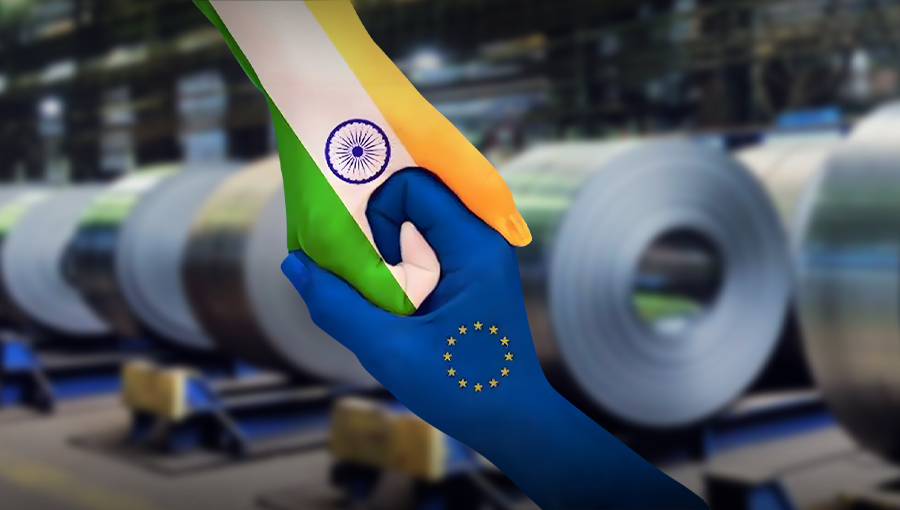India–US Trade Tensions Rise Over Steel and Auto Tariffs NMDC Limited reports a 38% drop in Q4 FY24 consolidated net profit RINL to Raise $23 Million Through Land Sales Amid Crisis

The European Union and India have been unable to reach a consensus at the World Trade Organization (WTO) about the concessions that the bloc can offer New Delhi to lessen the adverse effects of the charges it imposes on certain steel imports.
On June 7, the two parties held consultations over the European Union's recent statement that it would prolong the safeguard measures on some imports of steel products for a further two years, past the current termination date of June 30. "India and the European Union were not able to reach an agreement," India told the WTO on Monday. Many countries, including India, have suffered due to these actions. "India requested the European Union to put forth its proposals for maintaining a substantially equivalent level of concessions and other obligations and adequate trade compensation to mitigate the adverse effects of the proposed measure," India stated.
India, China, Russia, and five other countries have criticised the European Union's decision to keep imposing a levy on specific steel products. They claim that the measure violated the rules of the global trade organisation and was implemented after the US imposed additional duties on particular categories of steel imports from the bloc in 2018.
In retaliation, India had suggested in 2021 levying additional import tariffs totalling ₹292 million on a few EU imports.
Later, in response to the UK's decision to limit steel imports after it left the EU, it proposed extra customs tariffs of 15% on the entry of 22 products, including cheese, whisky, and diesel engine parts.
Under the WTO's Safeguards Agreement, members can temporarily restrict product imports through increased tariffs or other measures if their domestic industry suffers substantial harm. The measures apply to all imports, not just those from a certain country, and should not last more than four years. Developing nations that produce less than 3% of global exports are not subject to these restrictions.
India stated on Monday that it reserved the right to revoke any such commitments or comparable concessions.
Also Read : India's steelmakers fall short of investment targets due to China-linked delays Domestic demand for steel soars in India, country turns net importer in FY24: CRISIL Report